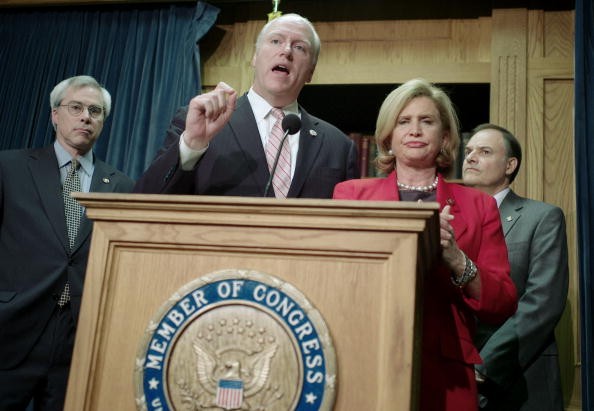The U.S. government, especially the Pentagon, has expressed concern over deals made by state-owned Chinese companies with U.S. startups, following the release of a new white paper distributed to senior officials of the Trump administration last week.
The New York Times reported that U.S. authorities were alarmed at the increasing level of investments made by Chinese firms in American start-ups, which often involved technology with potential military applications such as rocket engines for spacecraft, sensors for autonomous ships, among others.
According to the white paper, the U.S. government failed to protect these critical technologies from China, which it considers a military competitor.
"What drives a lot of the concern is that China is a military competitor," James Lewis, a senior fellow at the Center for Strategic and International Studies, said. "How do you deal with a military competitor playing in your most innovative market?"
The report said that the Chinese, as investors, can push for partnership and affect licensing or hiring decisions that would make intellectual property vulnerable. They may also have access to how the technology is developed.
With the release of the white paper, which was done before Trump assumed office, many U.S. officials are now questioning China's economic relationship with the U.S. as Republican lawmakers call for tighter laws on foreign acquisitions and giving more power to the Committee on Foreign Investment in the United States (CFIUS).
People familiar with the contents of the white paper said that Ashton Carter, Obama's former secretary of defense under President Barack Obama, had nominated Mike Brown, the former chief executive of Symantec, to lead the inquiry into the Chinese investments.
A spokesman for the Department of Defense, however, said it "will not discuss the details or components of draft internal working documents."
According to data from research firm CB Insights, China has invested nearly $9.9 billion in U.S. startups in 2015, about four times the investment the year before.
Experts, however, noted that the Chinese investors could only be making innocent investments as both the start-ups and the Chinese investors have never been accused of any wrongdoing. In addition, the Chinese investors were investing abroad as the government is trying to reduce pollution and enhance its industrial capacity.
Limit on Chinese investments
Proponents of the deal said that the limits on technology still apply on the Chinese deals.
Critics, however, said that the Chinese investments are part of China's effort to push its industrial policy and improve its technology holdings. They also cited China's effort to steal technology with military applications.
But some startups contend that only the Chinese investors can provide them with funding and the Chinese firms provide support for those struggling U.S. companies, believing they can make a big breakthrough.
Chinese investors can take risks and they are will to make deals fast, according to Max Versace, chief executive of Neurala, a company that makes software for drones.
Versace said that Haiyin Capital, a Chinese fund, has a minority stake on Neurala, as part of a $1.2 million round. He added that they make sure that the Chinese investor will have no access to the source code and other sensitive technological information.
Meanwhile, Yuquan Wang, Haiyin Capital's founder, said that the company plans to improve Chinese industrial capabilities but the U.S. export controls make it impossible to export the technology to China.
"We strive to get a portion of research and development moved back to China so that we can avoid China being only a low-end manufacturer," Wang added.




























